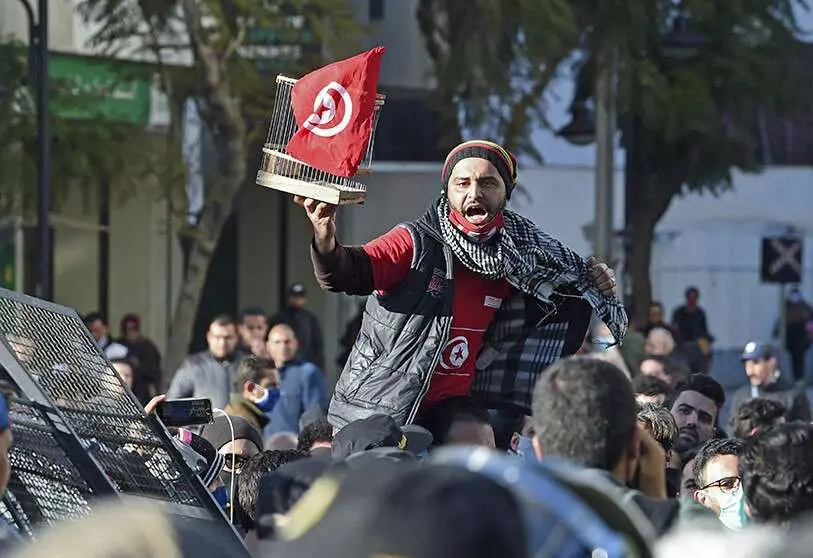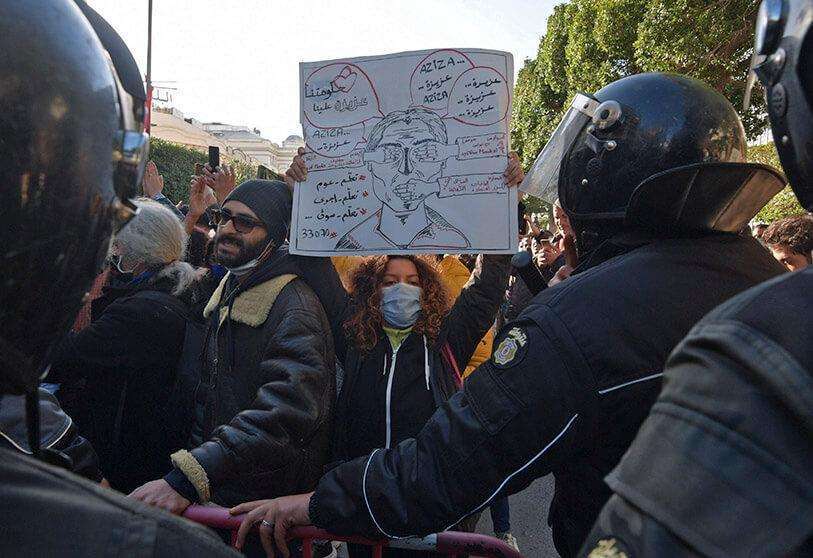Tunisians demonstrate against police violence

Tunisia was the first country to rise up against the tyranny of an authoritarian regime, and subsequently became a model for many other peoples tired of repression, lack of freedoms and poor economic prospects. Ten years after what was dubbed the 'Jasmine Revolution', many Tunisians, mostly young people, have once again taken to the streets to protest against the country's political paralysis, as well as the economic situation.
A new day of protests has shaken the country, but this time, and since the protests began in Tunisia, the demonstrators have mobilised against the high number of arrests and police violence, denouncing mistreatment by the authorities. The demonstrators also demanded the abolition of the law on narcotics, known as "law 52", after three young people were sentenced last week to thirty years in prison for possession and consumption of marijuana.
This latest rally was organised by a total of seventy associations. The demonstrators marched to Habib Bourguiba Avenue, the nerve centre of the protests, which is just a few metres from the Ministry of the Interior. In addition, during the protests, the anniversary of the 2013 assassination of a prominent activist, Chokri Belaid, was commemorated.
Chokri Belaid is considered to be one of the leading opposition figures against the then ruling Ennahda Islamists, who were accused of maintaining a violent discourse against him and making him a target. Belaid was assassinated eight years ago in broad daylight as he was leaving his home in the capital. Since then, his trial has been postponed multiple times and he has become a political weapon among those who accuse and defend the involvement of the Islamist Ennahda party. His death caused a great social upheaval and a deep political crisis in the country, which had just begun the democratic process in 2011 and put an end to 23 years of dictatorship.

Unlike previous marches, this one was backed by the General Union of Tunisian Workers (UGTT), the country's most powerful political organisation with a million members. Samir Cheffi, a senior UGTT official, explained that the protest was necessary to protect freedoms. "Today is a cry of alarm to defend the revolution, to protect threatened freedoms," he said.
The protesters chanted slogans against the moderate Islamist Ennahda party, and repeated the slogan of the Arab Spring: "the people want the fall of the regime". They also chanted slogans directed at the slogans directed at the speaker of parliament, Rached Ghannouchi, head of the ruling party, were repeated.
Police deployed cordons around the centre of the capital, preventing both cars and pedestrians from entering the streets around Habib Bourguiba Avenue, where thousands of people gathered, a Reuters witness confirmed.








